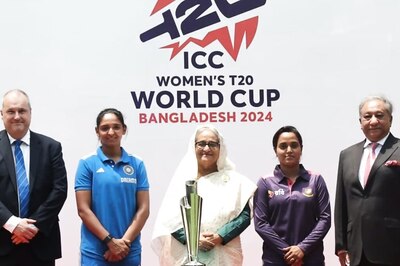
views
After Argentina were beaten 2-0 by Brazil in the Copa América semi-final, Lionel Messi accused the referee of bias. The Argentina captain claimed that a number of decisions went against his team, with Brazil eventually winning courtesy goals from Gabriel Jesus and Roberto Firmino. "The officiating was crazy," Messi said.
This isn't the first time that the issue of fairness has been brought up in football, especially in the past years with the inclusion of Video Assistant Referees (VAR). But why is a foul dubbed cynical and not simply pragmatic or tactical (take for instance, Sergio Ramos shouldering Mohamed Salah in the Champions League final in 2018). Or for that matter, why did Brazillian superstar Neymar Jr. become the punchline for an internet challenge centered around his theatrical 'dives'.
The argument that VAR could end footballing controversy is now increasingly seeming like a bit of a stretch. But it is easy to forget that modern football - with its emphasis on spectacle and skill - has not always been the same. Its rules have changed repeatedly over the years, and VAR is just the most recent attempt at trying to codify the ideas of 'fair play' into the sport. But that very idea has changed over the years.
FAIR PLAY AND ITS ORIGINS
The Fair Play Declaration of the International Council of Sport and Physical Education published at the UNESCO headquarters in Paris, 1976 suggests that the referee "should not confine his involvement to the playing field or arena" but also seek "contacts before and after the events with the competitors". Today, that could cost a referee his job.
The origins of these deliberations can be traced back to the origins of modern sport itself in Great Britain. With society modernist ideas of equality and competition, fair play was the underlying moral thread of sport forged by the 19th century English upper classes. In fact, concerns with the moral implications of sports date back to the 15th century Renaissance humanists. For instance, Juan Luis Vives expressing his distaste for the extreme violence characterising games utilised as a form of military training. In his 1538 publication, 'Six laws of play', he argued that "no game should serve to raise anger to dispute between fellow players" and there should not be "trace of deceit".
By the 19th century, ideas of competition and 'survival of the fittest' had permeated all aspects of live, as British trade conquered the world. Elite Schools such as Eton and Rugby were forging modern sports and the rules for play and surveillance first began being codified here. The ethics of fair competition, that the British believed had allowed their empire to spread and prosper, was also injected into sports. For instance, the first offside rules were devised during the late 18th century, developing differently in different schools.
These early games of football would be almost unrecognisable today. Handling the ball, for instance, was extensively allowed at Rugby. The referee was introduced as late as 1881 and the penalty kick a decade later. Physical injuries, particularly broken shins, were still common since 'hacking' of the opponent player, with iron-capped leather boots was not just tolerated. As FM Campbel, the first treasurer of the Football Association (FA) put it in 1863, "hacking was true football". By the 1850s, sports sociologist Eric Dunning pointed out, that these elite schools lent the tag of 'civilised character' and respectability to the sport.
THE EMPIRE AND THE BEAUTIFUL GAME
Traditional educators began to believe that these games - characterised by the struggles of power on the field and the need for restrain - would provide young men valuable lessons for lives. Another key and perhaps unexpected historical development that impacted football and ideas of fair play, was the Factory Act of 1850. This greatly increased the amount of free time that working class children had and, in turn, diluted the dominance of public schools in sports.
Although 'fair play' had been the at the core of the gentleman amateur's association with football, it increasingly came under pressure as football spread to the working classes. Amateurs who played the 'game for the game's sake' were now increasingly challenged by professionals, specialised football players who played for renumeration. The idea of fair play, at the time, didn't just mean adhering to the rules of the game, but also playing within the spirit of the game.
As the Empire spread, so did football. But this distinction between the amateur and professional, between fair play and its lack, was increasingly being viewed through lens of race. The idea that sport could foster a sense of discipline and hard work, aiding the colonisers with their larger aim of "civilising the natives" was put forward. But the sport also increasingly became a side of resistance across the world.
In Zanzibar (a region in modern day Tanzania), bias of foreign referees saw native teams boycotting matches while closer home in India, resistance started with Sovabazar Club's 2-1 upset over the East Surrey Regiment in the Trades Cup of 1892 and culminating in Mohun Bagan's historic 1911 victory over the all-British East Yorkshire Regiment in IFA Shield final.
Meanwhile the rules of the game, and what constituted fair play kept evolving. Goalkeepers were allowed to handle the ball for all purposes in 1901 and two-years later the direct free-kick was introduced and in 1938, a "serious foul" that results in the player being sent off was finally introduced.

















Comments
0 comment